Lausanne 4 concludes with call to ‘accelerate mission through collaboration’
The more than 5,200 attendees from 202 countries signed a ‘Collaborative Action Commitment’. The Seoul congress emphasised unity as the key factor in taking the gospel to every person, everywhere.
SEOUL · 30 SEPTEMBER 2024 · 13:21 CET
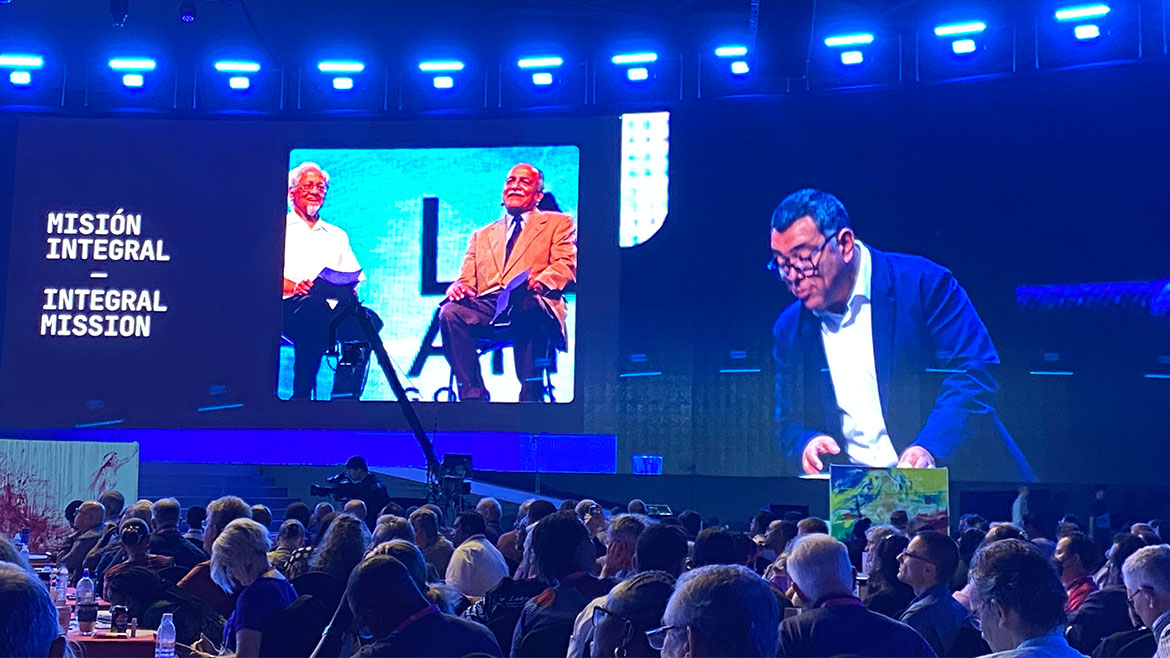
The Fourth Lausanne Movement Congress, which has brought together over 5,200 people from 202 nationalities in Incheon-Seoul, South Korea, seeks to accelerate mission through global collaboration.
As the global gathering ended, attendees were left with the challenge of processing much of what they have experienced and heard in an emotionally charged week (22-28 September).
But not even a Congress with such measured planning - the event clicked like a Swiss watch or, perhaps better said, like a state-of-the-art Korean device - escapes the surprise and genuineness, even with some controversy, of a gathering that brought together under a clear evangelical focus a wide diversity of theological perspectives, cultural heritages and approaches to ministry.
Let’s work together: signing of commitment
The Congress ended on Saturday morning with a call to joint action and an invitation to sign the ‘Collaborative Action Commitment’, which expresses the intention of each attendee to join together to “respond to the Great Commission by filling gaps and seizing opportunities”, seek “relationships and unity with leaders”, work to “remove duplication and silos by celebrating others” and “identify existing collaborative initiatives” and by addressing “together” the challenges facing the global church.
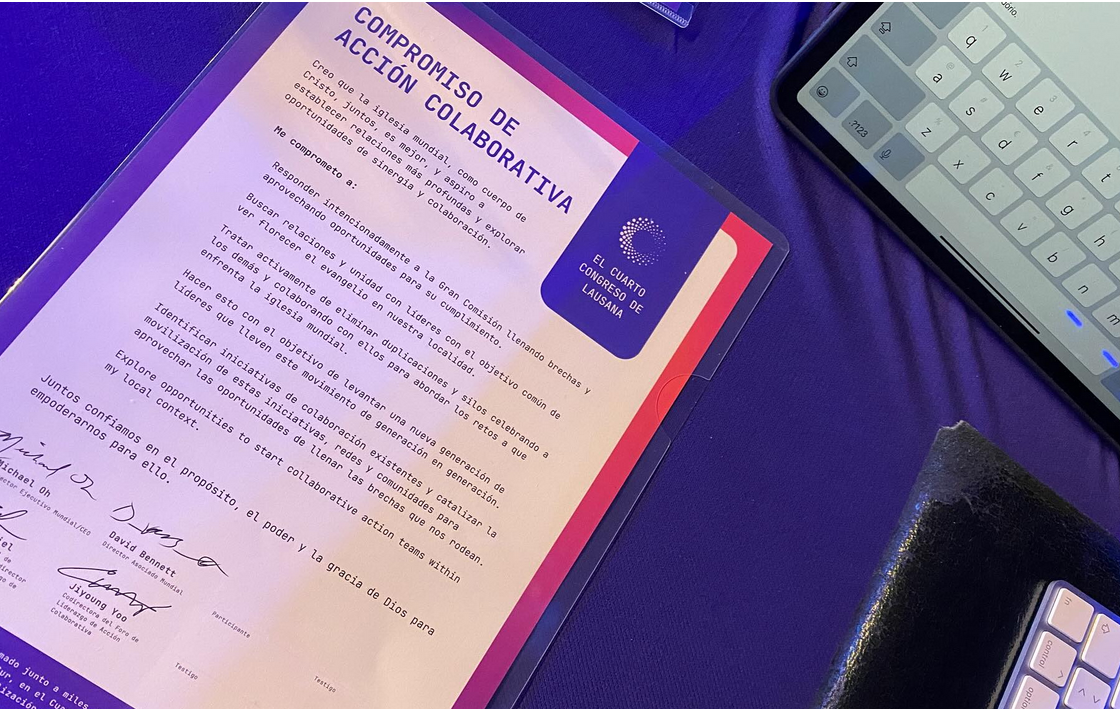
Each attendee had the opportunity to sign the Lausanne Movement's Commitment to Collaborative Action. / Daniel HofkampThe signing capped off what has been an intense week, which has seen not only a programme of plenaries and work in the 25 ‘gaps’, but also a host of regional, national, and cross-ministry and cross-focus area meetings.
If the future of mission in the global church is about collaboration, Lausanne has done a good job in facilitating the meeting place, recognition and networking of actors to “accelerate mission”, as has been repeated on several occasions.
United and on the move
On Saturday morning, Brazilian Ronaldo Lidório shared about the need to be willing to go to the ends of the earth. His work among indigenous communities underpins the words with which he urged those present to “preach with courage and without hindrance” the message that “all of humanity” needs.
To do so, “we cannot do it with our strategies, but only with the power of the Holy Spirit”. Lidório also pointed to the impact the gospel has to transform, redeem or confront in any society the sinful patterns it may encounter.
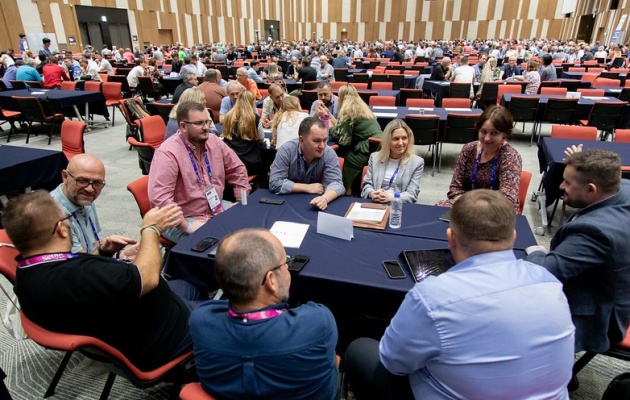
The regional gathering of European nations brought together 750 participants in Seoul. / Lausanne MovementPastor Rick Warren noted that “we know what needs to be done, but our problem is that we don’t do it”. Warren presented a template with ten very practical elements, drawn from the book of Acts, for “finishing the task”. He mentioned “praying for God’s power”, “Bible translation”, “training every believer”, using “our homes”, “a joyful witness”, “sharing everything” and “making financial sacrifices” as some of the keys.
The last speakers also included Allan Matamoros, a native of Costa Rica who lives in Spain. Allan presented the mission experience of the collaborative COMIBAM platform that has energised the evangelistic mission from Latin America to the rest of the world. Matamoros pointed out the importance of integral mission citing René Padilla and Samuel Escobar, who have been very important figures in the history of Lausanne.
The last moments of the Congress were devoted to the sharing of bread and wine, led by two leaders, a Korean and a Japanese, who together showed an example of reconciliation in Christ.
It all ended with a final thank you to the Korean church for their organisation and hospitality shown during the week.
The Korean church, as host, has given an example of service, maturity and love that will remain in the memory of many attendees. Thursday night’s presentation, with a historical and spiritual journey through Korea’s Christian history, was one of the most impressive and memorable moments of Lausanne 4.
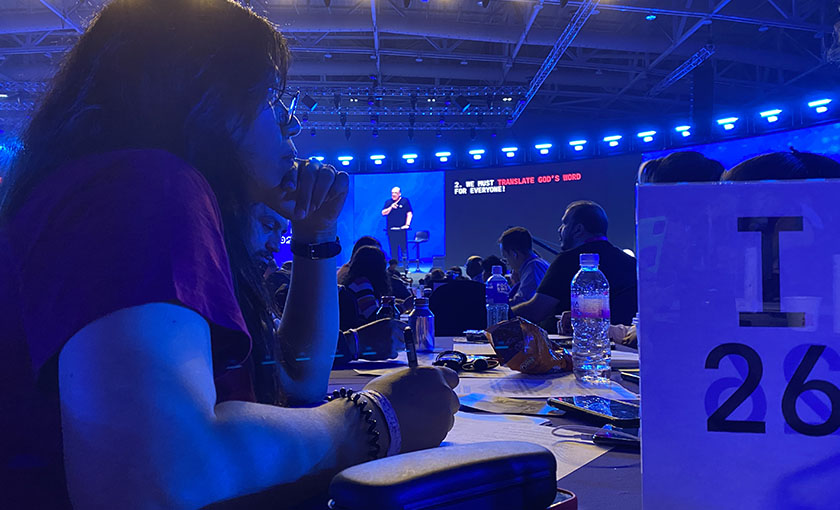
Everyone taking notes: Pastor Rick Warren handed out a sheet with ten points to carry the mission forward, based on the book of Acts. / Daniel HofkampSome controversies
The Congress did not escape some debates among participants on difficult issues, which is not a usual feature of the Lausanne dynamics. One of the plenary sessions recalled that the early church also dealt with difficulties and tensions, so it is not surprising that 2,000 years later there are still disagreements among us.
On Monday, Ruth Padilla DeBorst addressed the challenge of social injustices. As part of her presentation, the theologian made two remarks that made some participants uncomfortable and, as we later learned, expressed a complaint to the organisers.
Padilla had stated that ““There's no room for indifference towards all who are suffering the scourge of war and violence. The world around the uprooted and beleaguered people of Gaza, the hostages held by both Israel and Hamas and their families, the threatened Palestinians in their own territories”. At another point, Padilla lamented that “colonialist theologies that justify and finance oppression under the guise of some dispensational eschatology”.
On Wednesday, conference attendees received an email apology signed by the event’s director, David Bennett, who deemed Ruth Padilla’s remarks inappropriate. Her speech “singled out ‘dispensational eschatology’ in a critical tone, implying that it contributed to violence and injustice, and which failed to note that many theologies have been misused and misapplied as justifications for violence”, Bennett said.
“That same presentation referred to the suffering of the Palestinian people, but did not express comparable empathy for the suffering of Israeli people, nor adequately express concern for many other peoples and nations of the world that are currently in the throes of violent conflict”, he added.
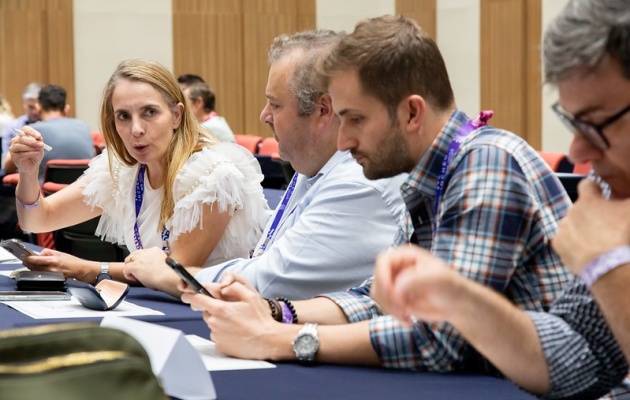
Throughout the congress, collaborative work around tables of 5-8 people was favoured / Lausanne Movement.What had previously been a largely unnoticed controversy became a visible conflict. The communiqué generated an avalanche of opinions and became a regular topic of informal conversations, in the corridors or at meals, or in the WhatsApp groups set up for communication between participants.
On the final day, Lausanne sent a new missive to attendees in which Bennett spoke about the that “meaningful conversations” that had taken place in Seoul, which added to the Lausanne Movement’s “legacy of welcoming and engaging with the diversity of voices in the family of Christ”. Following his introduction, the email reproduced an open letter from Ruth Padilla in which the theologian presented her arguments.
On dispensationalist theology, Padilla clarified that her words were “in any way a blanket dismissal of dispensational theology and, even less, of sisters and brothers who subscribe to that stance. For the pain my statement might have caused, I am sorry. What I am naming is the troubling theological rationale sustained by some people to perpetrate injustice against certain other people”.
As for her position on Palestine, Padilla believes it is necessary for Christians to “explicitly name” their suffering in the face of the image projected by much of the evangelical world of an “a-critically ‘stand with Israel’” position.
More prominent voices have spoken out publicly about what has happened.
The Seoul Statement?
The process of participation and listening in the Seoul Declaration has been another unresolved issue. At the previous Congress in Cape Town, participants worked at tables to shape the Commitment to Action, the second part of the document.
Chris Wright, who was then responsible for coordinating that master document in South Africa, appeared before the media on Friday, recalling the enormous amount of work involved in compiling all the reflections from the roundtables, which then gave shape to a comprehensive document, published months after the end of Lausanne 3.
The process was very different in Seoul, where the Declaration was presented as a document that had already been worked on by the 33-member Theology Commission with a definitive appearance. The fact that participants were not able to interact with or study the Seoul Declaration during the Congress - it was launched the same day the event began and was barely present in the programme - has generated some frustration among many participants, who had hoped for a greater degree of interaction with a text that was meant to stand alongside the Lausanne Covenant (1974), the Manila Manifesto (1989) and the Cape Town Commitment (2010).
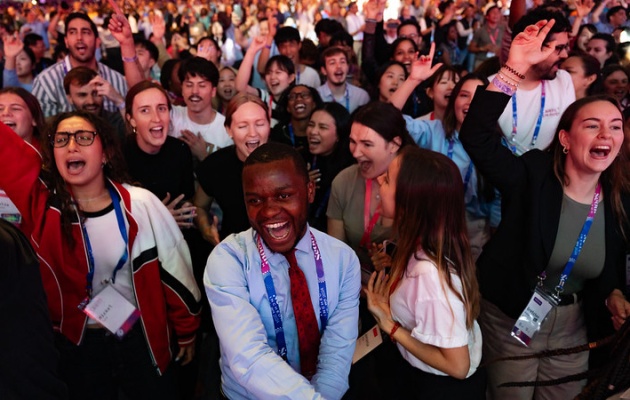
The moments of common worship combined the expression of classical hymns with some of the most modern worship songs. / Photo: Lausanne Movement.On Wednesday, a wide-ranging document began to circulate in various WhatsApp groups, proposing the revision of some aspects of the Declaration and requesting the addition of several issues that, according to the opinion of its promoters, were not being addressed and required attention.
On Friday, the Lausanne organisation set up a template so that participants could send their suggestions, so that the theology commission could work on them in the coming weeks. They also told the media present at the event that there is no set deadline for processing what they receive, although they pledged to study any suggestions that may be received.
Next global meeting: 2026 Young Leaders’ Gathering in Sao Paulo
In Incheon, it was announced that the next global meeting would be the for Younger Leaders, a gathering that takes place every ten years. A group with representatives from various parts of the world is already working to shape a programme that aims to convene thousands of leaders under the age of 40, as was the case in Jakarta, Indonesia in 2016.
This time, the event will take place in Brazil, specifically in Sao Paulo, which was celebrated with great enthusiasm by the large Latin American delegation present in Seoul.
The Fourth Lausanne Congress (L4) in Seoul has been covered by Evangelical Focus with the following contents:
First day report: ‘The Seoul L4 congress will only change history if it leads to great collaboration’
Second day report: “The sexual revolution neglects the weakest, the world needs the Jesus revolution”
Report of days three and four: “Persecution is part of history, but it is not the last page”
Preview on the State of the Great Commission Report
Preview on the 50th Anniversary of the Lausanne Movement.
Find more articles and content related to the Lausanne Movement by clicking here.
One more year
Learn all about our #OneMoreYearEF campaign here (English).
Published in: Evangelical Focus - world - Lausanne 4 concludes with call to ‘accelerate mission through collaboration’
